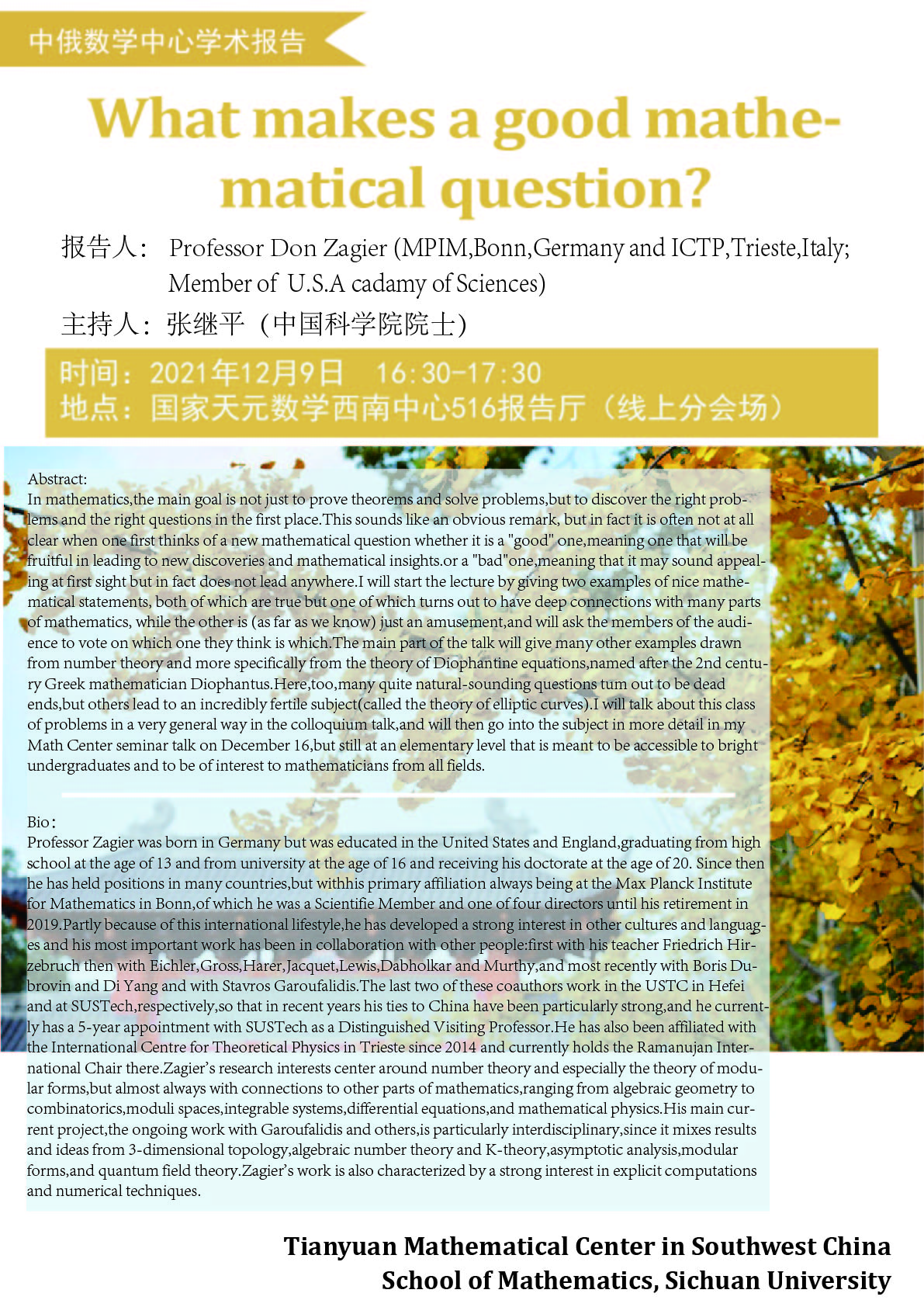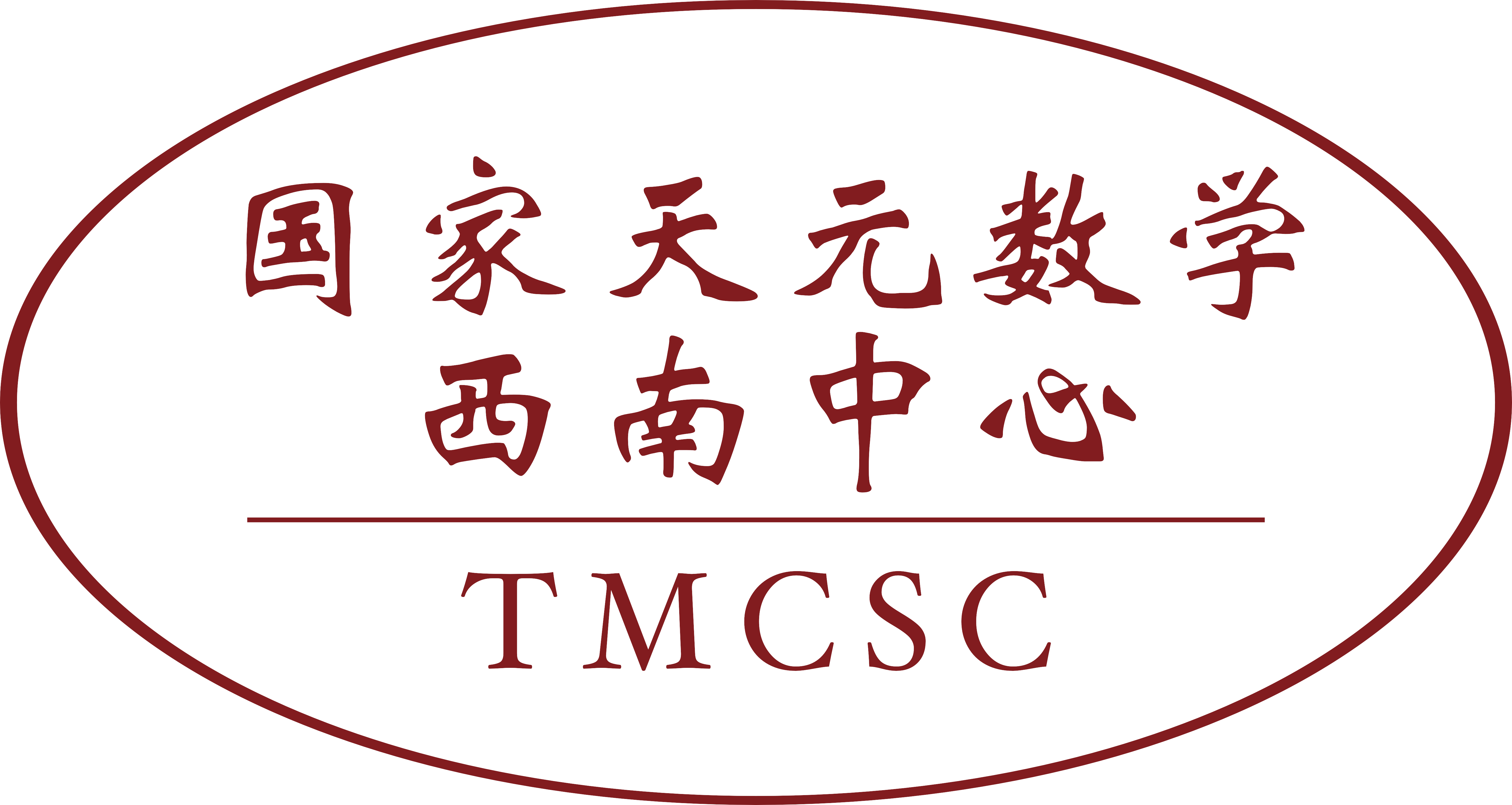题目:What makes a good mathematical question?
主持人:张继平院士(北京大学)
报告人:Professor Don Zagier(MPIM,Bonn,Germany and ICTP,Trieste,Italy;Member of U.S.Acadamy of Sciences)
时间地点:2021年12月09日下午16:30-17:30,国家天元数学西南中心516报告厅(线上分会场)
报告摘要:
In mathematics,the main goal is not just to prove theorems and solve problems,but to discover the right problems and the right questions in the first place.This sounds like an obvious remark, but in fact it is often not at all clear when one first thinks of a new mathematical question whether it is a "good" one,meaning one that will be fruitful in leading to new discoveries and mathematical insights.or a "bad"one,meaning that it may sound appealing at first sight but in fact does not lead anywhere.I will start the lecture by giving two examples of nice mathematical statements, both of which are true but one of which turns out to have deep connections with many parts of mathematics, while the other is (as far as we know) just an amusement,and will ask the members of the audience to vote on which one they think is which.The main part of the talk will give many other examples drawn from number theory and more specifically from the theory of Diophantine equations,named after the 2nd century Greek mathematician Diophantus.Here,too,many quite natural-sounding questions tum out to be dead ends,but others lead to an incredibly fertile subject(called the theory of elliptic curves).I will talk about this class of problems in a very general way in the colloquium talk,and will then go into the subject in more detail in my Math Center seminar talk on December 16,but still at an elementary level that is meant to be accessible to bright undergraduates and to be of interest to mathematicians from all fields.
报告人简介:
Professor Zagier was born in Germany but was educated in the United States and England,graduating from high school at the age of 13 and from university at the age of 16 and receiving his doctorate at the age of 20. Since then he has held positions in many countries,but withhis primary affiliation always being at the Max Planck Institute for Mathematics in Bonn,of which he was a Scientifie Member and one of four directors until his retirement in 2019.Partly because of this international lifestyle,he has developed a strong interest in other cultures and languages and his most important work has been in collaboration with other people:first with his teacher Friedrich Hirzebruch then with Eichler,Gross,Harer,Jacquet,Lewis,Dabholkar and Murthy,and most recently with Boris Dubrovin and Di Yang and with Stavros Garoufalidis.The last two of these coauthors work in the USTC in Hefei and at SUSTech,respectively,so that in recent years his ties to China have been particularly strong,and he currently has a 5-year appointment with SUSTech as a Distinguished Visiting Professor.He has also been affiliated with the International Centre for Theoretical Physics in Trieste since 2014 and currently holds the Ramanujan International Chair there.Zagier's research interests center around number theory and especially the theory of modular forms,but almost always with connections to other parts of mathematics,ranging from algebraic geometry to combinatorics,moduli spaces,integrable systems,differential equations,and mathematical physics.His main current project,the ongoing work with Garoufalidis and others,is particularly interdisciplinary,since it mixes results and ideas from 3-dimensional topology,algebraic number theory and K-theory,asymptotic analysis,modular forms,and quantum field theory.Zagier's work is also characterized by a strong interest in explicit computations and numerical techniques.

